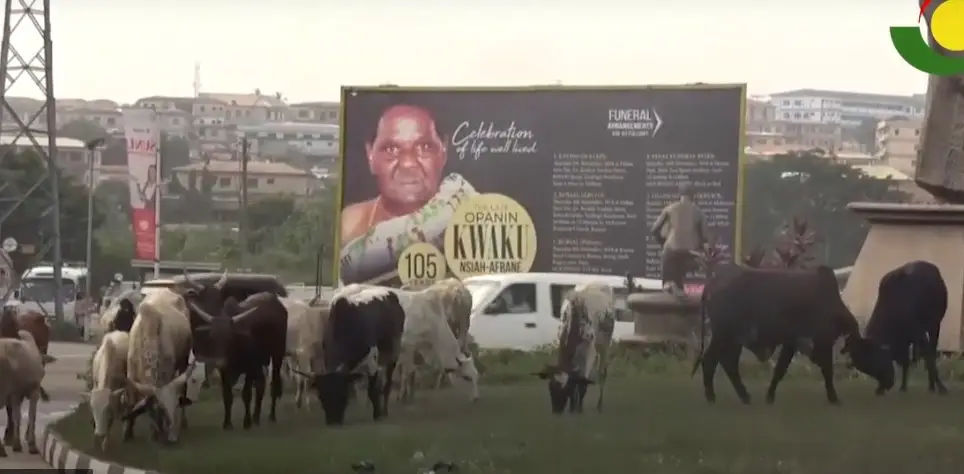The Kumasi Metropolitan Assembly (KMA) has taken decisive action against environmental pollution, targeting cattle owners whose livestock waste has contaminated the Moshie Zongo stream, a vital water source for local residents. Seven cattle owners were prosecuted and fined for repeatedly ignoring warnings from environmental authorities, highlighting the KMA’s commitment to safeguarding public health and environmental integrity. This legal action underscores a broader strategy to address pollution and maintain Kumasi’s reputation as a clean and organized city. The prosecution serves as a deterrent, signaling the KMA’s resolve to enforce environmental regulations and protect its water resources. This incident illuminates the tension between traditional livestock practices and the needs of a rapidly urbanizing environment.
The Moshie Zongo stream, crucial for domestic use by numerous residents, has suffered continuous contamination from animal waste despite repeated warnings. This pollution poses significant health risks to the community and degrades the local ecosystem. The Environmental Health Officers from the Manhyia North Sub-Metro, acting under the authority of the KMA, brought the case to Court 1 in Asem. The court imposed fines of 100 penalty units on each of the seven offenders, emphasizing the seriousness of the violation and the importance of adhering to environmental regulations. This action sends a clear message that the KMA will not tolerate practices that jeopardize public health and environmental well-being.
The KMA’s actions represent a significant step in addressing the challenge of balancing traditional livestock farming with the demands of a modern, urban environment. The prosecution of the cattle owners highlights the need for responsible livestock management practices that minimize environmental impact and protect public health. The fines imposed serve not only as punishment but also as a deterrent, encouraging cattle owners to adopt more sustainable practices and comply with environmental regulations. This incident emphasizes the importance of collaboration between local authorities, community members, and livestock owners in finding solutions that protect both livelihoods and the environment.
In a parallel development, newly appointed KMA Chief Executive, Richard Ofori Agyemang Boadi, has taken a strong stance against stray cattle within the city. Announcing a new policy effective May 1, 2025, he declared that stray cattle causing disturbances will be impounded, slaughtered, and the meat used to feed inmates at the Kumasi Central Prison. This decisive measure aims to restore order and dignity to the city’s urban spaces, addressing the nuisance caused by roaming livestock while also providing a practical use for the impounded animals. This policy reflects the KMA’s multi-pronged approach to environmental management and urban planning.
The Mayor’s announcement demonstrates a clear commitment to addressing the challenges posed by stray animals in the metropolis. This policy aims to balance the needs of livestock owners with the imperative to maintain a clean, orderly, and safe urban environment. The initiative highlights the KMA’s focus on practical solutions that address both the immediate problem of stray animals and the longer-term goal of sustainable urban development. By using the meat to feed prison inmates, the policy also introduces an element of resourcefulness and efficiency, minimizing waste and maximizing the utility of the impounded animals.
The KMA’s actions, from prosecuting polluting cattle owners to implementing the stray cattle policy, represent a comprehensive strategy to address environmental challenges and improve urban living in Kumasi. These initiatives highlight the importance of integrating environmental considerations into urban planning and management. By enforcing regulations, imposing penalties, and implementing practical solutions, the KMA is working to create a more sustainable and livable city for all its residents. The call for community cooperation underscores the need for a collective effort to protect Kumasi’s environment and ensure a healthy and sustainable future. This integrated approach, combining enforcement, proactive measures, and community engagement, positions Kumasi as a model for other urban centers grappling with similar challenges.














